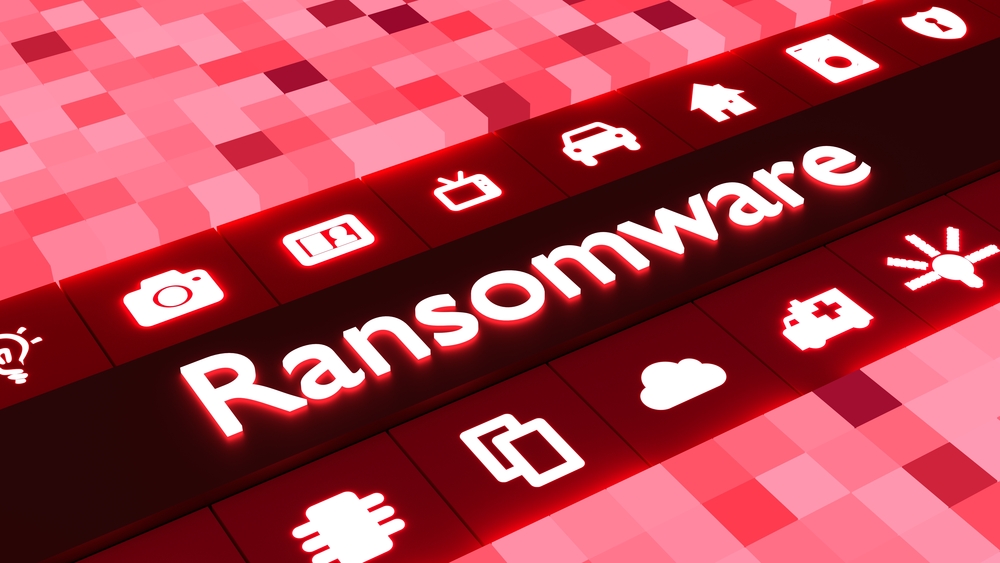PYSA ransomware gang attacks educational organizations with ChaChi malware
Golang-based RAT used to steal data before encryption


Security researchers have revealed the PYSA ransomware gang has started using a Golang-based Trojan (RAT) called ChaChi as part of a new campaign against educational organizations.
According to the BlackBerry Threat Research and Intelligence SPEAR Team, The PYSA crime gang developed the ChaChi malware, which is named after two key components of the RAT, Chashell and Chisel.
Researchers estimate the hackers developed ChaChi no earlier than mid-2019, but they believe its development likely occurred near the beginning of 2020.
Hackers used the earliest variant of this malware in attacks on French government authorities’ networks in March of 2020. Since then, researchers have observed it in attacks on health care organizations, private companies, and educational establishments. Recent PYSA ransomware attacks have targeted higher education and K-12 schools across 12 states and in the UK.
“After initial sightings in attacks during the first quarter of 2020, ChaChi’s code was altered to include obfuscation and persistence in late March or early April. Very soon after that, we started seeing ChaChi variants with the added DNS tunnelling and Port-Forwarding/Proxy functionality. There have been few noteworthy changes after that point,” researchers said.
In addition to installing ChaChi, the latest PYSA campaign uses PowerShell scripts to uninstall/stop/disable antivirus and other essential services.
Researchers said that by using Golang to develop ChaChi, PYSA ransomware operators can frustrate detection and prevention efforts by analysts and tools unfamiliar with the language.
Get the ITPro daily newsletter
Sign up today and you will receive a free copy of our Future Focus 2025 report - the leading guidance on AI, cybersecurity and other IT challenges as per 700+ senior executives
RELATED RESOURCE

“The earliest version of ChaChi lacked several features of more mature malware, but its rapid evolution and recent deployment against national governments, healthcare organizations, and educational institutions indicates this malware is being actively developed and improved,” said researchers.
Researchers added that the malware is a “powerful tool” in the hands of malicious actors who are targeting industries notoriously susceptible to cyber attacks.
“It has demonstrated itself as a capable threat, and its use by PYSA ransomware operatives is a cause for concern, especially at a time when ransomware is experiencing alarming success through a string of high-profile attacks including campaigns conducted by REvil, Avaddon and DarkSide,” said researchers.
Researchers warned that organizations ignoring this threat do so at their own risk, especially in a year of one-after-another cyber security disasters.
Rene Millman is a freelance writer and broadcaster who covers cybersecurity, AI, IoT, and the cloud. He also works as a contributing analyst at GigaOm and has previously worked as an analyst for Gartner covering the infrastructure market. He has made numerous television appearances to give his views and expertise on technology trends and companies that affect and shape our lives. You can follow Rene Millman on Twitter.
-
 Cleo attack victim list grows as Hertz confirms customer data stolen
Cleo attack victim list grows as Hertz confirms customer data stolenNews Hertz has confirmed it suffered a data breach as a result of the Cleo zero-day vulnerability in late 2024, with the car rental giant warning that customer data was stolen.
By Ross Kelly
-
 Lateral moves in tech: Why leaders should support employee mobility
Lateral moves in tech: Why leaders should support employee mobilityIn-depth Encouraging staff to switch roles can have long-term benefits for skills in the tech sector
By Keri Allan
-
 Cleo attack victim list grows as Hertz confirms customer data stolen – and security experts say it won't be the last
Cleo attack victim list grows as Hertz confirms customer data stolen – and security experts say it won't be the lastNews Hertz has confirmed it suffered a data breach as a result of the Cleo zero-day vulnerability in late 2024, with the car rental giant warning that customer data was stolen.
By Ross Kelly
-
 ‘Phishing kits are a force multiplier': Cheap cyber crime kits can be bought on the dark web for less than $25 – and experts warn it’s lowering the barrier of entry for amateur hackers
‘Phishing kits are a force multiplier': Cheap cyber crime kits can be bought on the dark web for less than $25 – and experts warn it’s lowering the barrier of entry for amateur hackersNews Research from NordVPN shows phishing kits are now widely available on the dark web and via messaging apps like Telegram, and are often selling for less than $25.
By Emma Woollacott
-
 Healthcare systems are rife with exploits — and ransomware gangs have noticed
Healthcare systems are rife with exploits — and ransomware gangs have noticedNews Nearly nine-in-ten healthcare organizations have medical devices that are vulnerable to exploits, and ransomware groups are taking notice.
By Nicole Kobie
-
 Alleged LockBit developer extradited to the US
Alleged LockBit developer extradited to the USNews A Russian-Israeli man has been extradited to the US amid accusations of being a key LockBit ransomware developer.
By Emma Woollacott
-
 February was the worst month on record for ransomware attacks – and one threat group had a field day
February was the worst month on record for ransomware attacks – and one threat group had a field dayNews February 2025 was the worst month on record for the number of ransomware attacks, according to new research from Bitdefender.
By Emma Woollacott
-
 CISA issues warning over Medusa ransomware after 300 victims from critical sectors impacted
CISA issues warning over Medusa ransomware after 300 victims from critical sectors impactedNews The Medusa ransomware as a Service operation compromised twice as many organizations at the start of 2025 compared to 2024
By Solomon Klappholz
-
 Warning issued over prolific 'Ghost' ransomware group
Warning issued over prolific 'Ghost' ransomware groupNews The Ghost ransomware group is known to act fast and exploit vulnerabilities in public-facing appliances
By Solomon Klappholz
-
 The Zservers takedown is another big win for law enforcement
The Zservers takedown is another big win for law enforcementNews LockBit has been dealt another blow by law enforcement after Dutch police took 127 of its servers offline
By Solomon Klappholz